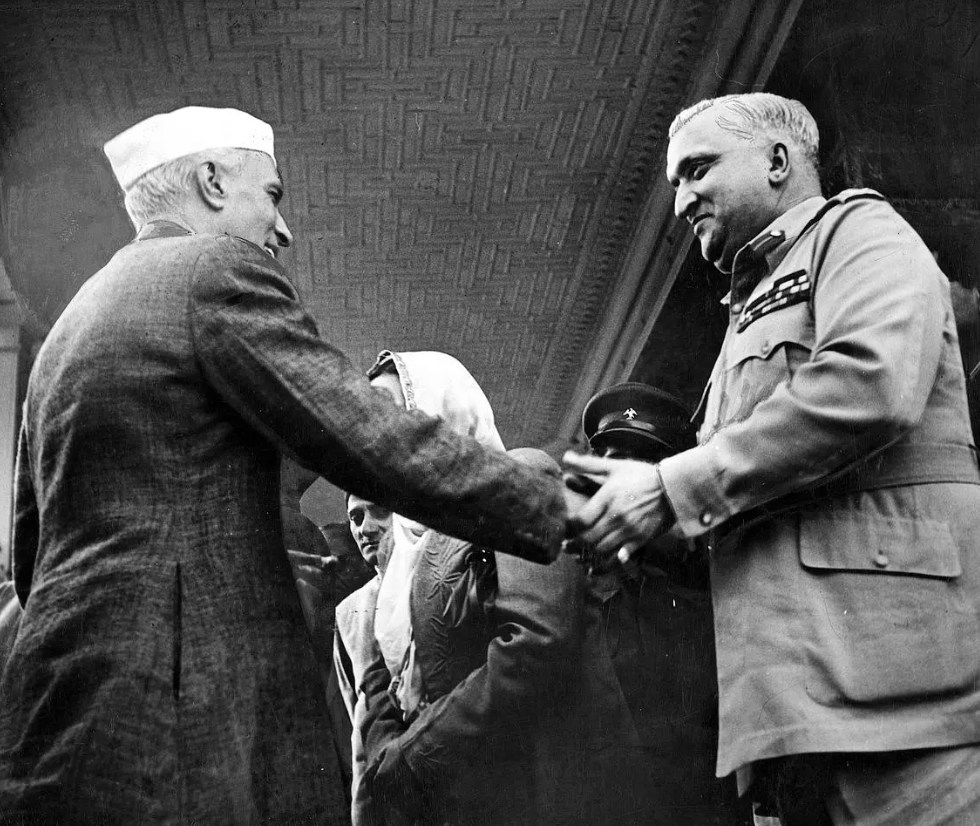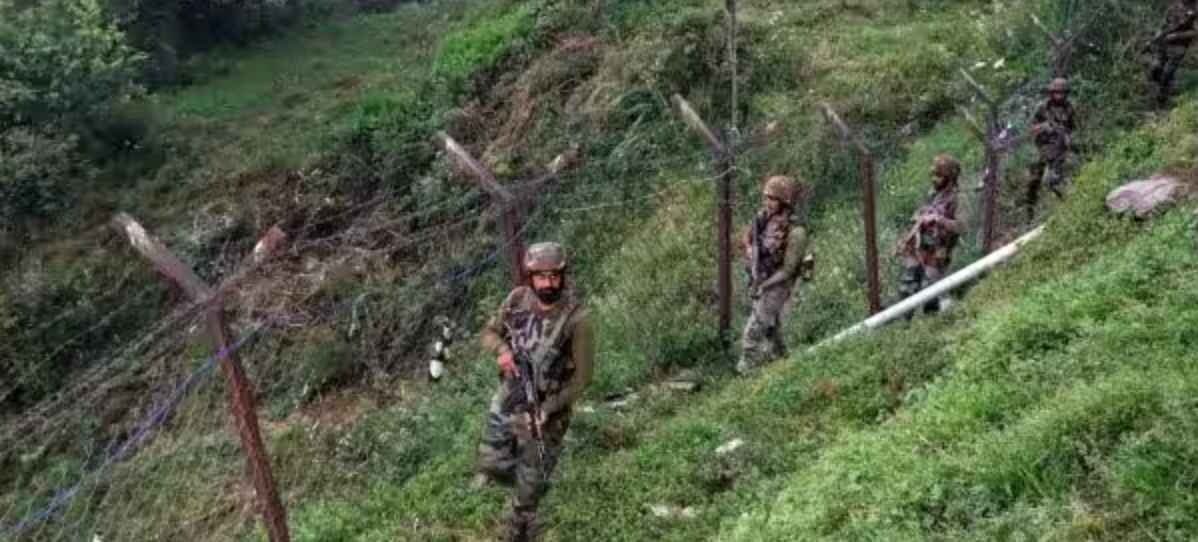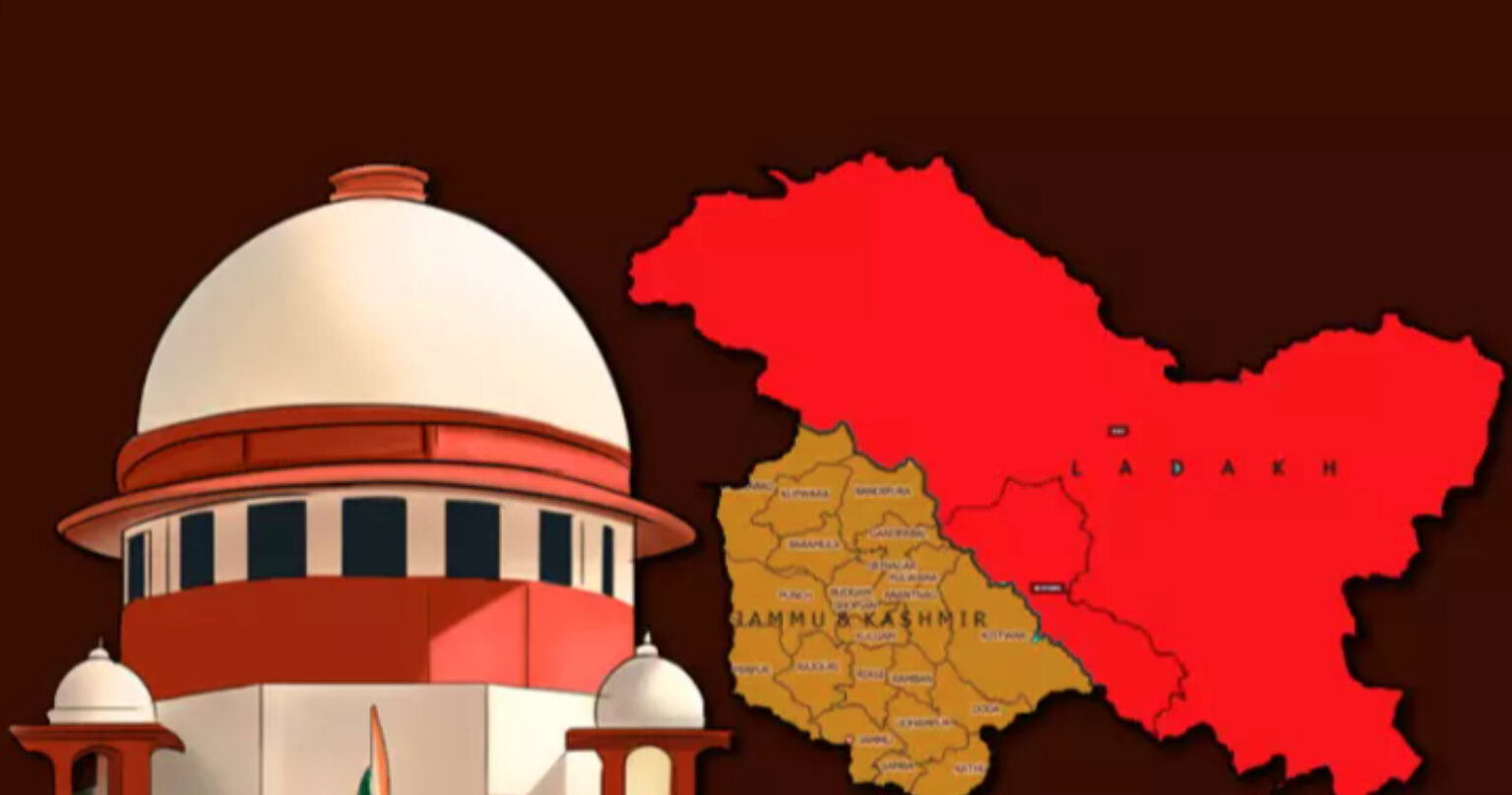In light of the constitutional validity of the abrogation of article 370 through the passage in the house and President’s order, do all other amendments stand null and void? Are all the other landmark judgements also not legally valid, as they have changed with changing times?
ON August 2nd, 2024, the Supreme Court of India began the hearing on the issue of abrogation of article 370 in 2019 as a constitutional challenge to the legitimacy and procedural conformity of the said action. Although, for the majority of Indians Jammu and Kashmir is a part of India, part population of the Union Territory might differ.
When Raja Hari Singh signed the Instrument of Accession in 1947, he did what, in his opinion, was best for his state, just the way a parent does for a child. He passed on the guardianship of the state to the State of India, but with the exception of the state having its own constitution when it comes to administrative matters.

Chronology of Events
- October 26, 1947: Following the invasion of Pakistani tribes in Jammu and Kashmir, Raja Hari Singh sought assistance from India. In response, he signed the Instrument of Accession (IoA), aligning J&K with India. This move marked the beginning of J&K’s association with the Indian Union.
- May 27, 1949: India’s Constituent Assembly deliberated on the draft of Article 370, which incorporated the terms of the Instrument of Accession. This article granted a special status to J&K within the Indian Constitution.
- May 1, 1951: Dr. Karan Singh, the son of Raja Hari Singh, issued a proclamation convening the Constituent Assembly of the state. This assembly was tasked with framing a constitution for J&K.
- 1952: The Delhi Agreement was signed between Prime Minister Jawaharlal Nehru and Sheikh Abdullah, the Prime Minister of J&K. This agreement solidified the relationship between India and J&K, outlining areas of cooperation and mutual understanding. The Delhi Agreement defined how India’s central government and J&K’s government would work together, balancing autonomy with overall governance.
- May 15, 1954: Article 35A was introduced through a presidential order. This provision was inserted into the Indian Constitution to safeguard laws passed by the J&K state legislature related to the rights and privileges of permanent residents.
- November 1957: The Constituent Assembly of J&K adopted the Constitution of the State of Jammu and Kashmir. This constitution delineated the governance structure and legal framework specific to the state.
Arguments in the court
Dinesh Dwivedi argues that Article 370 ceased to be effective after Jammu and Kashmir’s Constitution was enacted in 1957. This implies that the Indian Constitution would no longer apply fully to the state. Chief Justice Chandrachud questions this perspective, suggesting that freezing the application of the Indian Constitution in 1957 would hinder further legal developments in J&K. The Court emphasises the importance of understanding the context and intent of Article 370’s creation. Dwivedi’s viewpoint prompts a closer examination of the Constituent Assembly’s discussions. His stance introduces a new perspective on J&K’s special status and its relationship with the Indian Constitution.
CJI DY Chandrachud appears to be merely seeking clarity and understanding the legal and constitutional aspects involved in the interpretation of Article 370. He raises probing questions and challenges the arguments made by Dwivedi, “The net consequence would be [that] the Constitution of India, in its application to the state of Jammu and Kashmir, would stand frozen as of January 1957. Therefore no further development in Indian Constitutional law can apply, according to you, to the state of J&K 1957? How can that be accepted?”.
The Instrument of Accession was signed to save the state from invasion from Pakistan was the raison d’etat, giving India the defence and strategic powers, and by extension creating a customised Union and State list.
India is a quasi-federal state, meaning the Union will always surpass the state.
The UT has been plagued with the issue of terrorism, narcotics, militancy, hate towards motherland, internal and external aggression, financial terrorism, to name a few. These problems are the root of the extreme volatility in the state, and why the central government needed to up their defence strategy. That being said, the atrocities by the Central Government are also not justified on the grounds of human right violation, such extreme military interventionism, network ban, etc.

The Document was signed to save the state from invasion from Pakistan
By challenging the constitutionality of the repeal of article 370, senior advocate Dinesh Dwivedi is also challenging other aspects of the constitution, such as the doctrine of basic structure, amendment rights of the houses, the order of the president, etc.
So why is that Kashmir should get a special status when it comes to defence as well, but other parts of the nation must comply with the Centre?
Why should Northeastern states only get the ILP, but not their own constitution?
These are questions that plague the security and threats of India, and must be resolved as soon as possible.
The issue is contentious and sensitive, and instead of having tyranny of majority, justice for all must prevail, in a fair and fast manner.












